Share
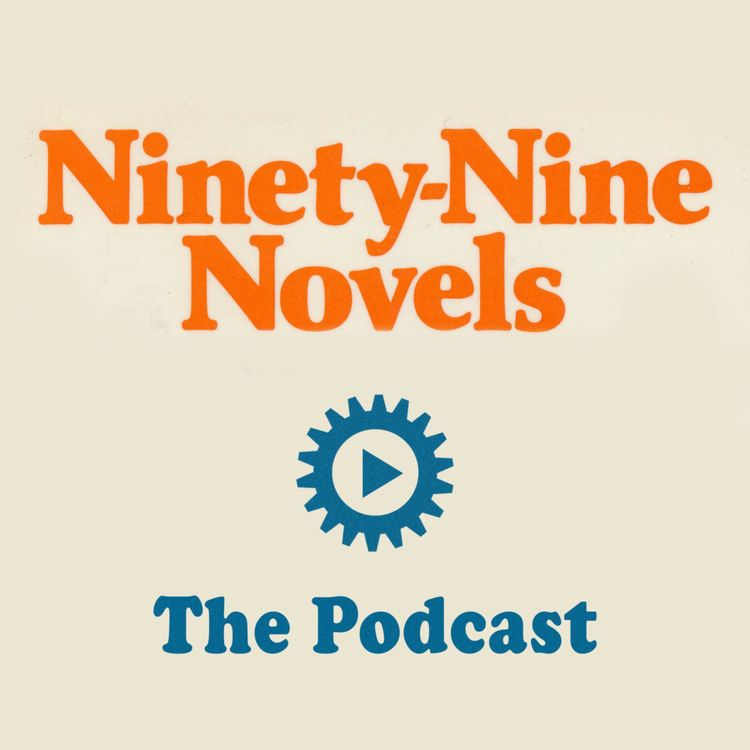
The International Anthony Burgess Foundation Podcast
Ninety-Nine Novels: Darconville's Cat by Alexander Theroux
In 1984, Anthony Burgess published Ninety-Nine Novels, a selection of his favourite novels in English since 1939. The list is typically idiosyncratic, and shows the breadth of Burgess's interest in fiction. This podcast, by the International Anthony Burgess Foundation, explores the novels on Burgess's list with the help of writers, critics and other special guests.
In this episode, we’re exploring the complex, controversial and language-rich novel Darconville’s Cat by Alexander Theroux with our guest, writer George Salis.
The novel tells the story of Alaric Darconville, an English instructor at an all-girls’ college in Virginia. He is intensely romantic and intellectual, and eventually falls in love with one of his students. He views their relationship as a great love affair, but his romanticism blinds him to reality. Eventually, he meets the mysterious Dr Crucifer, an unrepentant misogynist who attempt to brainwash the younger man to his way of thinking.
Alexander Theroux was born in Massachusetts in 1939, and is the author of four novels, four collections of poetry, three collections of short stories and several works of non-fiction. His most recent publication is the collection of poetry, Godfather Drosselmeier’s Tears & Other Poems.
George Salis is a novelist, literary critic and editor. His novel Sea Above, Sun Below was praised by Alexander Theroux as having ‘electricity on every page’. He is the editor of The Colliderscope, an online publication that celebrates innovative literature, and the host of its companion podcast. He has recently completed his maximalist novel Morphological Echoes.
-----
BOOKS MENTIONED IN THIS EPISODE
By Alexander Theroux
Three Wogs, including 'Theroux Metaphrastes' (1972)
Laura Warholic (2007)
By others:
Moby-Dick by Herman Melville (1851)
Ulysses by James Joyce (1922)
Lolita by Vladimir Nabokov (1955)
Girls at Play by Paul Theroux (1969)
Plus by Joseph McElroy (1977)
Love in a Dead Language by Lee Siegel (1999)
-----
LINKS
Sea Above, Sun Below by George Salis at Amazon
The Collidescope, George Salis's website
International Anthony Burgess Foundation
The theme music for the Ninety-Nine Novels podcast is Anthony Burgess’s Concerto for Flute, Strings and Piano in D Minor, performed by No Dice Collective.
More episodes
View all episodes

Preserving the Anthony Burgess Audio Collection
30:38|In this episode, we are shedding some light on the conservation work currently ongoing in the Anthony Burgess archives. Andrew Biswell speaks with David Govier, an expert in the preservation of audio recordings at Manchester Central Library, who has been exploring ways in which to preserve and digitise the Burgess Foundation’s large collection of reel-to-reel and cassette tapes, some of which have not been heard for 50 years.-----LINKSManchester Central Library Sound Archive BlogInternational Anthony Burgess FoundationBurgess Foundation Free Weekly NewsletterBurgess Foundation shop at Bookshop.org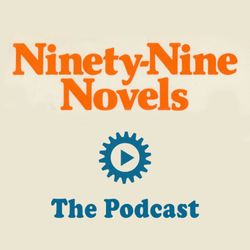
Ninety-Nine Novels: The Anti-Death League by Kingsley Amis
48:06|In 1984, Anthony Burgess published Ninety-Nine Novels, a selection of his favourite novels in English since 1939. The list is typically idiosyncratic, and shows the breadth of Burgess's interest in fiction. This podcast, by the International Anthony Burgess Foundation, explores the novels on Burgess's list with the help of writers, critics and other special guests.In this episode, Graham Foster explores the military satire of The Anti-Death League by Kingsley Amis, with writer and academic Andrew James.The Anti-Death League follows the soldiers of an army base that borders a quaint English village. They are preparing for the mysterious Operation Apollo, but there may be spies in their midst. As the preparations progress and the lives of the soldiers intersect with the inhabitants of the village, including a lustful aristocratic lady and a psychotherapist who may me more insane than his patients, Lieutenant James Churchill begins to question his purpose.Kingsley Amis was born in 1922 in London. He wrote over twenty novels, the most famous being Lucky Jim, which also appears on Burgess’s list. He won the Booker in 1986 for The Old Devils and was knighted in 1990. He died in 1995.Andrew James is currently a professor in the School of Commerce at Meiji University in Tokyo, where he conducts research in both literary biography and wine. He is the author of the books: Kingsley Amis: Antimodels and the Audience (McGill-Queen’s UP, 2013) and Bandol Wine and the Magic of Mourvèdre (Cambridge Scholars Publishing, 2023). His latest book is The Life of the Author: Graham Greene (Wiley Blackwell, 2025).-----BOOKS MENTIONED IN THIS EPISODEBy Kingsley Amis:Lucky Jim (1954)That Uncertain Feeling (1955)Colonel Sun: A James Bond Adventure (1968)Jake's Thing (1978)Difficulties with Girls (1988)By others:A Clockwork Orange by Anthony Burgess (1962)The Wanting Seed by Anthony Burgess (1962)Honey for the Bears by Anthony Burgess (1963)Albert Angelo by B.S. Johnson (1964)A Vision of Battlements by Anthony Burgess (1965)The Unfortunates by B.S. Johnson (1969)Joysprick: An Introduction to the Language of James Joyce by Anthony Burgess (1973)Earthly Powers by Anthony Burgess (1980)-----LINKSThe Life of the Author: Graham Greene by Andrew JamesInternational Anthony Burgess FoundationBurgess Foundation free weekly newsletterThe theme music for the Ninety-Nine Novels podcast is Anthony Burgess’s Concerto for Flute, Strings and Piano in D Minor, performed by No Dice Collective.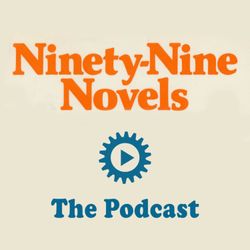
Ninety-Nine Novels: The Old Men at the Zoo by Angus Wilson
42:30|In 1984, Anthony Burgess published Ninety-Nine Novels, a selection of his favourite novels in English since 1939. The list is typically idiosyncratic, and shows the breadth of Burgess's interest in fiction. This podcast, by the International Anthony Burgess Foundation, explores the novels on Burgess's list with the help of writers, critics and other special guests.In this episode, Andrew Biswell explores the strange dystopia of The Old Men at the Zoo by Angus Wilson, with writer and academic Marina MacKay.The Old Men at the Zoo is a novel of two halves. In the first, Simon Carter, secretary of London Zoo, is tempted by responsibility and power and forgoe his gifts as a naturalist. Yet, in their desire to set up a reserve for wild animals, the old men at the zoo are blind to the approaching chaos of nuclear war. In the second half, the zoo is taken over by a dystopian dictatorship and transformed into a concentration camp.Angus Wilson was born in 1913. During the Second World War he worked as a codebreaker at Bletchley Park, after which he worked as a librarian in the British Museum’s Department of Printed Books. His first novel, Hemlock and After, was published in 1952 and was followed by seven more, including Late Call, which also appears on Anthony Burgess’s list. From 1966-1978 he was Professor of English at the University of East Anglia, where he co-founded, with Malcolm Bradbury, the famous Masters in Creative Writing. He was knighted in 1980 and died in 1991.Marina MacKay is Professor of English Literature and a Fellow of St Peter’s College, University of Oxford. Her books include Modernism, War, and Violence (Bloomsbury, 2017) and Ian Watt: The Novel and the Wartime Critic (OUP, 2018). She is currently writing a book about British literature and culture in the 1950s.-----BOOKS MENTIONED IN THIS EPISODEBy Angus Wilson:Anglo-Saxon Attitudes (1956)The Middle Age of Mrs Eliot (1958)Late Call (1964)Diversity and Depth in Fiction: Selected Critical Writings (1983)By others:Northanger Abbey by Jane Austen (1818)Bleak House by Charles Dickens (1853)Our Mutual Friend by Charles Dickens (1865)Strangers and Brothers by C.P. Snow (1940-70)The Four Quartets by T.S. Eliot (1941)Brideshead Revisited by Evelyn Waugh (1945)A Dance to the Music of Time by Anthony Powell (1951-75)The Novel Now by Anthony Burgess (1967)Midnight's Children by Salman Rushdie (1981)The White Hotel by D.M. Thomas (1981)The Fourth Protocol by Frederick Forsyth (1984)-----LINKSModernism, War, and Violence by Marina MacKayIan Watt: The Novel and the Wartime Critic by Marina MacKayInternational Anthony Burgess FoundationThe Burgess Foundation's free weekly newsletterThe theme music for the Ninety-Nine Novels podcast is Anthony Burgess’s Concerto for Flute, Strings and Piano in D Minor, performed by No Dice Collective.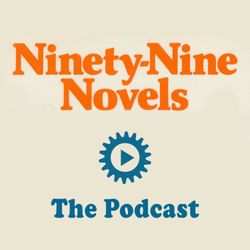
Ninety-Nine Novels: Portnoy's Complaint by Philip Roth
41:11|In 1984, Anthony Burgess published Ninety-Nine Novels, a selection of his favourite novels in English since 1939. The list is typically idiosyncratic, and shows the breadth of Burgess's interest in fiction. This podcast, by the International Anthony Burgess Foundation, explores the novels on Burgess's list with the help of writers, critics and other special guests.In this episode, Graham Foster submits Philip Roth’s notorious novel Portnoy’s Complaint to examination with academic and writer Matthew Shipe.Portnoy’s Complaint is structured as a monologue to a psychotherapist. Alex Portnoy reveals his inner life and obsessions, including his sexual predilections, his strange relationship with his mother, and his attendant feelings of shame. If the novel’s themes are shocking, Anthony Burgess praises Roth’s ‘great literary skill to make so fierce a theme the occasion for such uproarious comedy.’Philip Roth was born in New Jersey in 1933. His first book was the story collection Goodbye, Columbus, which was released in 1959. He went on to write 28 novels, including The Human Stain, The Plot Against America, and American Pastoral, which won the Pulitzer Prize in 1997. Throughout most of his career, he taught comparative literature at the University of Pennsylvania. He died in 2018.Matthew Shipe is a Teaching Professor in the English Department at Washington University in St Louis. He is the author of Understanding Philip Roth and the editor, with Scott Dill, of the collection Updike and Politics: New Considerations. In 2015, he won the John Updike Review's Emerging Writers Prize for his essay ‘The Long Goodbye: The Role of Memory in John Updike's Short Fiction.’ From 2016-2024, he served as the President of the Philip Roth Society. He currently serves as the co-executive editor of Philip Roth Studies and is on the Executive Board of the John Updike Society.-----BOOKS MENTIONED IN THIS EPISODEBy Philip Roth:Goodbye, Columbus (1959)Letting Go (1962)When She Was Good (1967)The Breast (1972)The Ghost Writer (1979)Zuckerman Unbound (1981)The Counterlife (1986)The Facts (1988)Operation Shylock (1993)Sabbath's Theater (1995)American Pastoral (1997)I Married A Communist (1999)The Human Stain (2000)The Plot Against America (2004)Nemesis (2010)By others:Rabbit, Run by John Updike (1960)Couples by John Updike (1968)The Godfather by Mario Puzo (1969)Fear of Flying by Erica Jong (1973)The Coup by John Updike (1978)Rabbit is Rich by John Updike (1981)The Tunnel by William H. Gass (1995)'Certainly the End of Something or Other, One Would Sort of Have to Think' in Consider the Lobster by David Foster Wallace (2005)Dissident Gardens by Jonathan Lethem (2013)Forest Dark by Nicole Krauss (2017)Homeland Elegies by Ayad Akhtar (2020)Small Rain by Garth Greenwell (2024)-----LINKSUnderstanding Philip Roth by Matthew Shipe (affiliate link)International Anthony Burgess FoundationThe Burgess Foundation's free Substack newsletterThe theme music for the Ninety-Nine Novels podcast is Anthony Burgess’s Concerto for Flute, Strings and Piano in D Minor, performed by No Dice Collective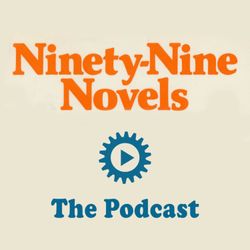
Ninety-Nine Novels: Riddley Walker by Russell Hoban
49:02|In 1984, Anthony Burgess published Ninety-Nine Novels, a selection of his favourite novels in English since 1939. The list is typically idiosyncratic, and shows the breadth of Burgess's interest in fiction. This podcast, by the International Anthony Burgess Foundation, explores the novels on Burgess's list with the help of writers, critics and other special guests.In this episode, Will Carr heads to the dystopian future of Riddley Walker by Russell Hoban. His guide is writer and academic Graeme Wend-Walker.Set 2000 years into the future, in an England dealing with the fallout from nuclear Armageddon, Riddley Walker concerns the adventures of a twelve-year-old as he discovers what lies outside his small community. The novel is narrated in an English that has degenerated over the years, so the reader discovers the world through a disorientating language. Burgess called the novel ‘a permanent contribution to literature.’Russell Hoban was born in Pennsylvania in 1925. At the age of 18, he served as a radio operator for the US Army during World War II. After leaving the army, he made his name as an illustrator and an advertising copywriter. He began writing illustrated books for children in 1960. His first novel for adults was The Lion of Boaz-Jachin and Jachin-Boaz, published in 1973. He went on to write 15 more novels and more than 40 books for children. He died in 2011 in London.Graeme Wend-Walker is a creative writer and a professor of literature at Texas State University. His scholarship is focused on writing for children and young adults, as well as science fiction, fantasy, and horror, and the folk traditions of Southeast Asia. His book Russell Hoban: Faithful to the Strange was published in 2025.-----BOOKS MENTIONED IN THIS EPISODEBy Russell Hoban:How Tom Beat Captain Najork and his Hired Sportsmen (1974)Kleinzeit (1974)Turtle Diary (1975)By others:Things Fall Apart by Chinua Achebe (1958)A Clockwork Orange by Anthony Burgess (1962)Feersum Endjinn by Iain M. Banks (1994)Katabasis by R.F. Kuang (2025)What We Can Know by Ian McEwan (2025)-----LINKSRussell Hoban: Faithful to the Strange by Graeme Wend-WalkerInternational Anthony Burgess FoundationThe Burgess Foundation's free Substack newsletterThe theme music for the Ninety-Nine Novels podcast is Anthony Burgess’s Concerto for Flute, Strings and Piano in D Minor, performed by No Dice Collective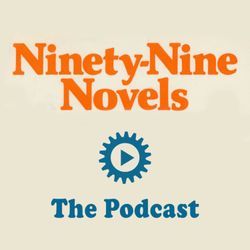
Ninety-Nine Novels: Sweet Dreams by Michael Frayn
42:22|In 1984, Anthony Burgess published Ninety-Nine Novels, a selection of his favourite novels in English since 1939. The list is typically idiosyncratic, and shows the breadth of Burgess's interest in fiction. This podcast, by the International Anthony Burgess Foundation, explores the novels on Burgess's list with the help of writers, critics and other special guests.In this episode, we’re exploring the heaven of Michael Frayn’s Sweet Dreams with Frayn expert Katrine Antonsen.Sweet Dreams follows the afterlife of Howard Baker, a middle-class, educated professional. In the first chapter, he dies in a car accident and finds himself in a strange city which seems to be tailor made for him. As his afterlife progresses, he replaces leisure and enjoyment with a recreation of his earthly life, complete with his wife, his children and his friends. But the monotonous comfort of the celestial suburbs inspire him to go on a philosophical journey in the hope of meeting God.Michael Frayn was born in 1933 in London, where he still lives. He is perhaps best known for his work for the stage, including the plays Noises Off and Copenhagen. He has written eleven novels, with Spies winning the Whitbread Prize for best novel in 2002. Frayn has also written memoir, journalism, philosophy, several screenplays, and translated the works of Anton Chekov and Leo Tolstoy.Katrine Antonsen is currently a lecturer in English Literature at the Royal Norwegian Air Force Academy in Trondheim, Norway. She completed her PhD in the works of Micheal Frayn in 2018. She has written and lectured about Frayn in both Britain and Norway, and has introduced a Norwegian-language performance of Noises Off with a lecture at the Trøndelag Teater, Trondheim.-----BOOKS MENTIONED IN THIS EPISODEBy Michael Frayn:A Very Private Life (1968)Make and Break (1980)Noises Off (1982)A Landing on the Sun (1991)Now You Know (1993)Copenhagen (1998)Spies (2002)By others:England, England by Julian Barnes (1998)-----LINKSInternational Anthony Burgess Foundation Burgess Foundation newsletter at SubstackThe theme music for the Ninety-Nine Novels podcast is Anthony Burgess’s Concerto for Flute, Strings and Piano in D Minor, performed by No Dice Collective.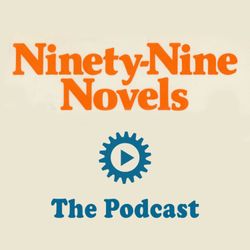
Ninety-Nine Novels: The Coup by John Updike
47:38|In 1984, Anthony Burgess published Ninety-Nine Novels, a selection of his favourite novels in English since 1939. The list is typically idiosyncratic, and shows the breadth of Burgess's interest in fiction. This podcast, by the International Anthony Burgess Foundation, explores the novels on Burgess's list with the help of writers, critics and other special guests.In this episode, Andrew Biswell talks to writer and critic Bob Batchelor about The Coup by John Updike, a novel Anthony Burgess called ‘a beautifully written disturbing lyric composition’.The Coup focusses on Hakim Felix Ellellou, the former dictator of Kush, a fictional Islamic state in Africa. He looks back on his life and his time as ruler and documents the American involvement in the political life of his country. Through double-dealing and betrayal, the Americans are instrumental in inspiring a coup against Ellellou.John Updike was born in Reading, Pennsylvania in 1932. He published his first novel, The Poorhouse Fair, in 1959. He is perhaps best known for the four novels that deal with the adventured of Rabbit Angstrom, and for The Witches of Eastwick, which was adapted into a film in 1987. He won the Pulitzer Prize in 1991 for his novel Rabbit at Rest. He died in 2009.Bob Batchelor has written 16 books on subjects as wide as The Great Gatsby, Jim Morrison and the Doors, the Prohibition, and comic book writer Stan Lee. He has written extensively about John Updike, including the book John Updike: A Critical Biography. He has also presented the podcast series John Updike: American Writer, American Life. He is currently Assistant Professor in the Department of Communication, Media, and Culture at Coastal Carolina University.-----BOOKS MENTIONED IN THIS EPISODEBy John Updike:Rabbit, Run (1960)'Hub Fans Bid Kid Adieu' in the New Yorker (1960)Rabbit Redux (1971)Marry Me (1976)Picked-Up Pieces (1976)Rabbit is Rich (1981)The Witches of Eastwick (1984)Rabbit at Rest (1990)Terrorist (2006)By others:Blue Eyes by Jerome Charyn (1975)Maria La Davina by Jerome Charyn (2025)-----LINKSBob Batchelor onlineJohn Updike: A Critical Biography by Bob Batchelor (affiliate link)Stan Lee: The Man Behind Marvel by Bob Batchelor (affiliate link)John Updike: American Writer, American Life podcast by Bob Batchelor International Anthony Burgess FoundationBurgess Foundation weekly newsletter on SubstackThe theme music is Anthony Burgess's Concerto for Flute, Strings and Piano in D Minor. It is performed by No Dice Collective.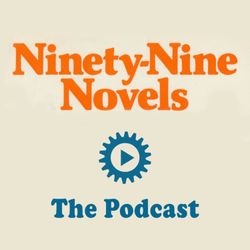
Ninety-Nine Novels: The French Lieutenant's Woman by John Fowles
37:21|In 1984, Anthony Burgess published Ninety-Nine Novels, a selection of his favourite novels in English since 1939. The list is typically idiosyncratic, and shows the breadth of Burgess's interest in fiction. This podcast, by the International Anthony Burgess Foundation, explores the novels on Burgess's list with the help of writers, critics and other special guests.In this episode, Will Carr investigates the postmodern delights of The French Lieutenant’s Woman by John Fowles, with writer and editor Charles Drazin.Telling the story of the meeting between the gentleman Charles Smithson and the disgraced Sarah Woodruff, The French Lieutenant’s Woman defies the conventions of the Victorian novels to which it pays homage. Putatively a love story, the narrative leads to multiple conflicting endings. Of the novel, Anthony Burgess wrote, ‘A very modern mind is manipulating us as well as the characters.’John Fowles was born in 1926 in Essex. After training to join the navy, he studied at New College, Oxford, where he became interested in writing. After university, he became a teacher, holding posts in Britain, France and Greece, the latter inspiring the setting of his novel The Magus. His first novel, The Collector, was published in 1963, and he went on to write six more novels, a book of essays, a collection of poetry and several more non-fiction works. He died in 2005. Charles Drazin is the editor of two volumes of journals by John Fowles. He has written about a variety of subjects. His books on film include In Search of The Third Man and The Faber Book of French Cinema. He has written the histories The Man Who Outshone the Sun King, which tells the story of Louis XIV’s finance minister Nicolas Foucquet; and Mapping the Past, which follows a family of Irish Catholic surveyors who mapped vast swathes of the British Empire. His most recent book, Making Hollywood Happen (2022), tells the inside story a little-known company that in the past seventy years has overseen the production of hundreds of the most celebrated movies ever made. He is currently working on the Faber Book of British Cinema.-----BOOKS MENTIONED IN THIS EPISODEBy John Fowles:The Collector (1963)A Maggot (1985)Journals, Volumes One and Two (2003, 2006)By others:Orlando by Virginia Woolf (1928)Wide Sargasso Sea by Jean Rhys (1966)Beloved by Toni Morrison (1987)-----LINKSCharles Drazin OnlineMaking Hollywood Happen by Charles DrazinInternational Anthony Burgess FoundationThe Burgess Foundation Newsletter at Substack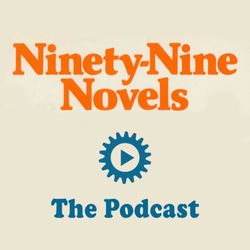
Ninety-Nine Novels: The Vendor of Sweets by R.K. Narayan
49:13|In 1984, Anthony Burgess published Ninety-Nine Novels, a selection of his favourite novels in English since 1939. The list is typically idiosyncratic, and shows the breadth of Burgess's interest in fiction. This podcast, by the International Anthony Burgess Foundation, explores the novels on Burgess's list with the help of writers, critics and other special guests.In this episode, we’re learning about The Vendor of Sweets by R.K. Narayan with writer, editor and academic Claire Chambers.The Vendor of Sweets tells the story of Jagan, a Hindu sweetmaker who strictly follows the principles of Mahatma Ghandi. When his layabout son, Mali, decides he wants to study creative writing in America, Jagan initially supports him, but when a newly westernised Mali returns to India with an American wife and a plan to manufacture novel-writing machines, Jagan’s patience wears thin.R.K. Narayan was born in Madras (now Chennai), India in 1906. His first novel, Swami and Friends, was published in 1930 and introduced the world to Malgudi, the fictional Indian town in which many of Narayan’s subsequent novels, including The Vendor of Sweets, are set. In 1958, his novel The Guide, won him the National Prize of the Indian Literary Academy. Narayan wrote 15 novels, 9 books of non-fiction, and 6 collections of short stories. He died in 2001.Claire Chambers is Professor of Global Literature at the University of York and a Fellow of the Royal Society of Arts. She specialises in literature from South Asia, the Perso-Arab world, and their diasporas. She is the author of several books, including Britain Through Muslim Eyes (2015), Rivers of Ink: Selected Essays (2017), and Making Sense of Contemporary British Muslim Novels (2019). She edited Desi Delicacies: Food Writing from Muslim South Asia (2021), co-edited A Match Made in Heaven (2020), and co-authored Storying Relationships (2021). Her forthcoming book is Decolonizing Disease: Pandemics, Public Health, and Pathogenic Novels and will be published by Liverpool University Press in 2026.-----BOOKS MENTIONED IN THIS EPISODEBy R.K. Narayan:Malgudi Days (1943)The Guide (1958)By others:Rayamana by Valmiki (c. 500 BCE)Mahābhārata by Vyasa (c. 400 BCE)Hind Swaraj by Mohandas Gandhi (1909)Kanthapura by Raja Rao (1938)Nineteen Eighty-Four by George Orwell (1949)'Toba Tek Singh' in Mottled Dawn: Fifty Sketches and Stories of Partition by Saadat Hasan Manto (1955)Yellowface by R.F. Kuang (2023)The Centre by Ayesha Manazir Siddiqi (2023)----LINKSMaking Sense of Contemporary British Muslim Novels by Claire Chambers (affiliate link)Translation and Decolonisation, edited by Claire Chambers and Ipek Demir (affiliate link)International Anthony Burgess FoundationThe Burgess Foundation's free Substack newsletterThe theme music for the Ninety-Nine Novels podcast is Anthony Burgess’s Concerto for Flute, Strings and Piano in D Minor, performed by No Dice Collective